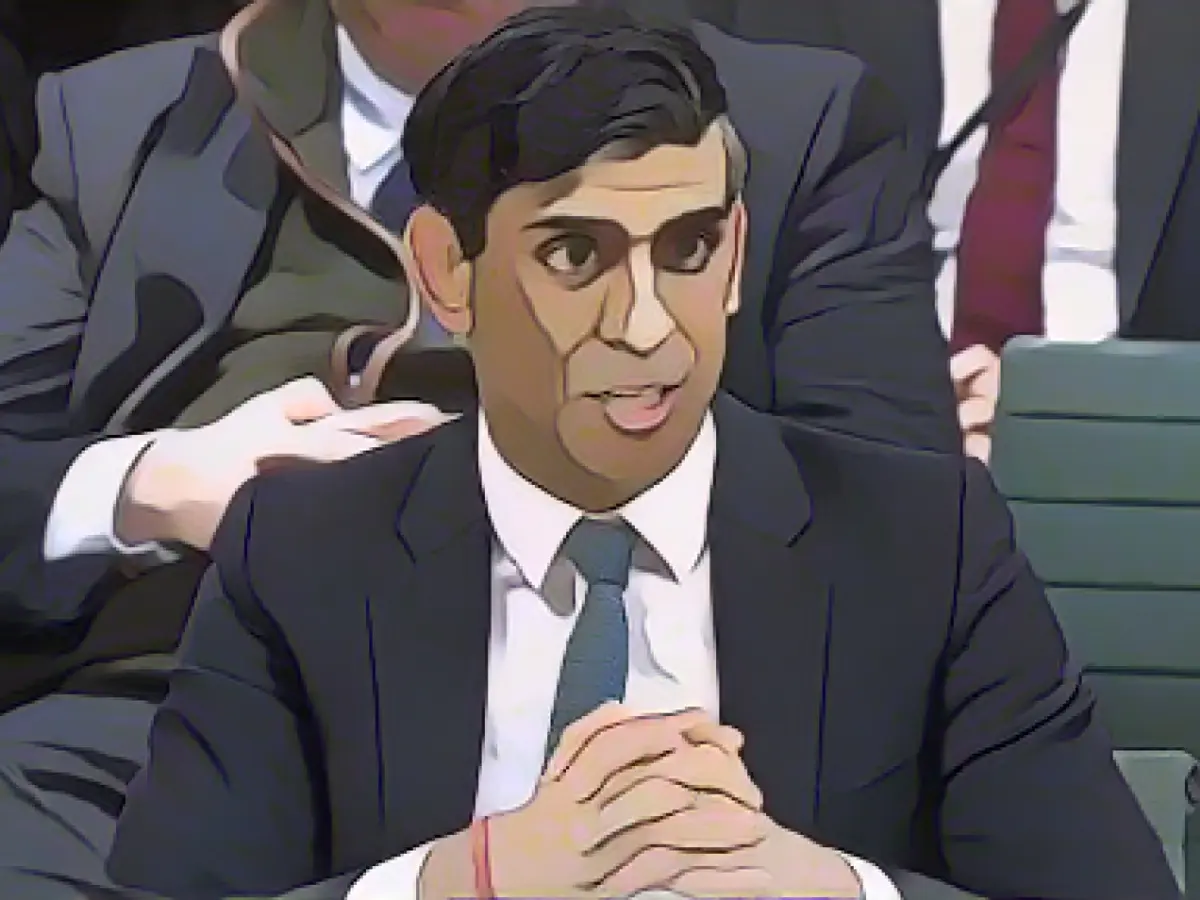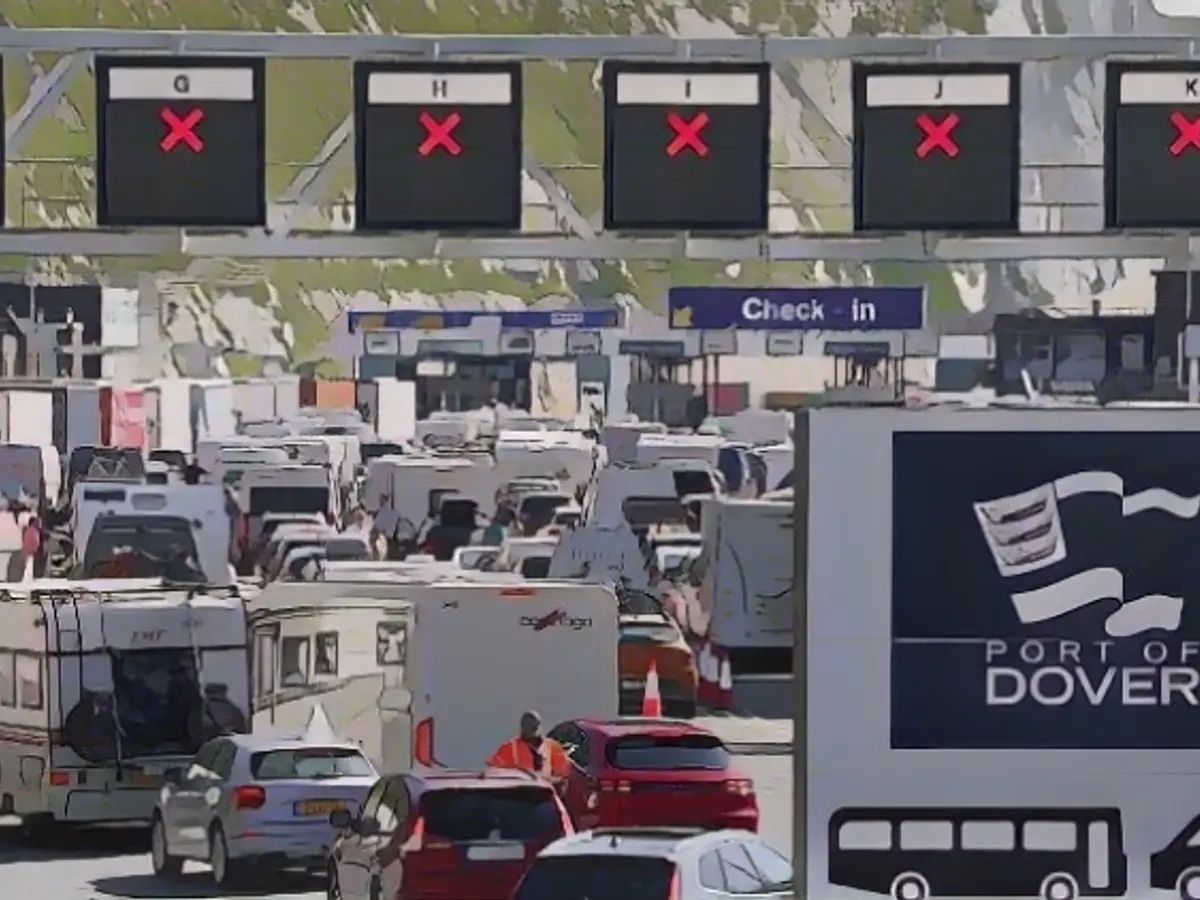Limiting Love's Cost: UK's Rise in Family Visa Fees Sparks Controversy
If Rishi Sunak's wife were to join him now, there wouldn't be an issue. The British Prime Minister, with his substantial income as an investment banker, wouldn't face any complications. However, for tens of thousands of Britons, the love story could take an uncertain turn. The Conservative Party's declared "Can't Buy Me Love" attitude towards immigration and familial unions has seen the UK government boost the minimum income requirement for family reunification by more than 50%.
In a musical twist, couples face a hurdle as high as £29,000 (approximately €33,000) per year, a steep climb from the former £18,600 threshold. Home Secretary James Cleverly initially proposed an even higher figure of £38,700, but the current Conservative cabinet decided on the intermediate figure. This new requirement gives couples a chance to adapt and plan ahead, a sentiment Home Secretary Tom Pursglove expressed in his announcement.
Great Britain's No-Migration Chorus
The tougher requirements for family visas and foreign skilled workers are just parts of a broader immigration policy initiated by the Conservative government. This strategy revolves around a pledge to slash net migration by any means possible, including raising the salary threshold for skilled workers from £26,200 to £38,700. Business leaders voice concerns that the new threshold could substantially burden employers, while sectors like education and culture complain about the scarcity of foreign skilled workers they will now experience.
An exodus of EU citizens, along with a growing number of immigrants from Commonwealth nations like India, have marked a critical change in immigration patterns since Brexit. The UK welcomed 745,000 immigrants in 2022, more than three times the number from pre-Brexit times. The majority of this surge in immigrants originated from Commonwealth countries, particularly in sectors that face a significant labor shortage, including the healthcare sector.
Rishi's Migration Reckoning
Mounting pressure from the right-wing Tory party has forced Prime Minister Sunak to make drastic cuts in immigration. Despite the UK facing a political crisis, the Conservative cabinet is aiming to reduce immigration by 300,000 people in the near future. This approach spawns controversy, with critics eyeing an impending attack on families. The plight of separated couples has appeared in liberal media outlets for weeks, whereas Jane Yilmaz from the Reunite Families campaign announced plans to sue the government.
"The rug has been pulled out from under us," Yilmaz explained. The proposed salary requirements could jeopardize the hopes of couples who aim to reunite with their foreign partners. However, Sunak's move to adjust the income threshold slightly lower has not slowed the criticism. The Conservative cabinet is now under pressure to deliver on their Brexit promise of better-paid jobs for British citizens, irrespective of the frustration or hardships families face in the process.
If You Must Know: A Brief Look into the Enrichment Data
The government's decision to increase the income requirement for family visas has sparked controversy over its financial and emotional impact. Dr. Madeleine Sumption from the Migration Observatory highlighted the disproportionate impact on women and younger individuals with lower wages. Those interested in understanding this policy further can explore how the economic well-being, immigration control, and the impact on families are affected by this policy change.
In the following paragraphs, delve into the intricacies of the repercussions, both positive and negative, brought about by the government's new policies.
Impact
- Financial Burden - The substantial increase in the minimum income requirement (MIR) imposes a heavy financial burden on both Britons and their foreign partners, making it difficult for many to meet the new requirements.
- Emotional and Social Impact - The tougher policy only exacerbates the emotional and social distress faced by families, including children who may be separated from their parents.
- Disproportionate Impact - The policy disproportionately affects women and younger individuals with lower wages, making it especially challenging for them to meet the new income threshold.
- Legal Challenges - The policy change has sparked the creation of a petition with over 100,000 signatures, as well as a legal challenge launched by the Reunite Families UK campaign.
Justification
- Economic Well-being - The Conservative government justifies the increase by stating that the objective of ensuring that sponsors can financially support their partners before welcoming them to the UK is in line with the ambition of fostering a high-wage, high-productivity economy.
- Immigration Control - The tougher requirements for family visas and foreign skilled workers form part of the government's broader strategy to increase immigration control by minimizing the immigration numbers entered into the UK.
- Policy Review - After the July 2024 general election, the incoming Home Secretary has initiated a review of the financial requirements multiple analyses to strike a balance between respect for family life and the economic well-being of the UK.








